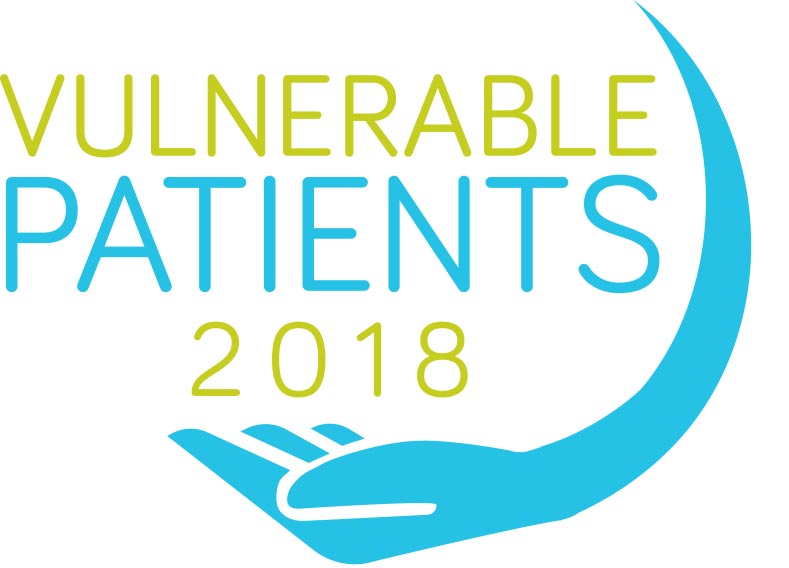 Introducing Irish Dentistry’s focus on Ireland’s most vulnerable patients throughout 2018. What’s it all about?
Introducing Irish Dentistry’s focus on Ireland’s most vulnerable patients throughout 2018. What’s it all about?
—
 Last year was an important year for Ireland’s most vulnerable patients.
Last year was an important year for Ireland’s most vulnerable patients.
Initiatives like Mouth Cancer Awareness Day highlighted the importance of caring for socially excluded patients, like the homeless and addiction sufferers.
In the summer, the Irish Society of Disability and Oral Health (ISDH) held its annual conference, with a team of international experts offering hands-on advice and training for the assessment and management of dental anxiety and phobia.
And there were plenty more drives for awareness for Ireland’s youngest patients and older people’s oral health in nursing homes up and down the country.
So, this year, on the back of the success of Keep Kids’ Teeth Clean 2017 – our campaign for better children’s oral heath – we’ll be focusing on a wider group of vulnerable patients.
We are also delighted to welcome the generous support of Pamex, one of Ireland’s leading healthcare companies, specialising in the Kin Dental product range.
The facts
Plenty of research last year highlighted the urgency of improving the oral health of vulnerable patients in Ireland.
Nursing home patients were found to be among the most susceptible to poor oral health, having up to 20 teeth extracted due to the unregulated provision of sugary foods, according to the Irish Dental Association (IDA).
Additionally, calls for a national oral health programme for children were being echoed across the country. Dr Michaela Dalton, president of the HSE Dental Surgeons group, pressed upon the importance of a properly funded programme for preschool kids, along with regular school screenings for primary school children, in the Journal of the Irish Dental Association.
The study of 347 preschool children in Cork showed that ‘prevention is not just a much better option for patients; it is also much more cost effective.’
In April last year, The Irish Times also reported on the misuse of night-time feeds for babies. Paediatric dentist Dr Kristen FitzGerald found that ‘well-meaning but poorly informed’ parents were using fluoridated toothpaste earlier than the recommended age of two years, before a child’s tooth enamel is mature.
Our mission
Our mission is simple. Throughout 2018, we’ll be offering advice and information on ways you can help Ireland’s most vulnerable patients.
If we can get you talking about the most vulnerable patients in your community, then that counts for something.
So, here’s what you can expect from us in 2018.
Older people
Since January, we’ve been focusing on older patients in Irish Dentistry magazine. Thanks to the Dental Health Foundation and other contributors, we’ve looked at challenges facing older people in Ireland, including care in nursing homes, access to dental care, dentures, mobility, social and psychological factors of ageing, and other health issues.
We also spoke to Dr Gerry McKenna in January – senior lecturer and consultant in restorative dentistry at Queen’s University Belfast – and Christine McGarrigle, epidemiology research fellow from Trinity College Dublin, who gave a brief overview of older patients’ health in statistics. For articles, contact hello@irishdentistry.ie.
Special needs and medically compromised
From now until May in the magazine, we’ll be looking at special needs patients, with advice from the ISDH, universities and dental hospitals in Ireland. Don’t miss Dr Christina Carter‘s article in our April issue on easy secrets to facilitate treating special needs patients.
We will also aim to provide more information on dental anxiety and phobia, and the ways in which you can deal with these patients.
Socially excluded groups
Last year, we looked at the incredible work Tiglin Challenge are doing in the mountains of Country Wicklow.
A former outdoor pursuits centre, Tiglin Challenge was transformed into a rehabilitation clinic for men (and women, housed on a separate site) in the latter part of 2008. It’s now a fully equipped residential housing programme for those affected by homelessness and drug and alcohol addiction on the streets of Dublin.
Charities like this are important for the community. We’ll take a look at how they are working with these socially excluded groups, and how you can get involved, too.
Children
Children are the future. And yet, despite this, their oral health is often the most neglected due to lack of education, awareness or access to dental care.
Societies like the Irish Division of the European Academy of Paediatric Dentistry (EAPD) and the Irish Society of Dentistry for Children (ISDC) are helping to change public perception. To to this, they need your help.
Towards the end of the year, we’ll focus on the role of each person in the dental team in helping promote oral health amongst children, and factors that may contribute to its detriment.
Can you help?
Along the way, we’ll be sharing your stories as well. Do you run an oral health programme in your practice or local school? Do you visit a nursing home regularly? How do you look after your special needs patients?
If you or someone you know is doing something special for Ireland’s vulnerable patients, get in touch with us at hello@irishdentistry.ie. It is never too late to start somewhere.
































